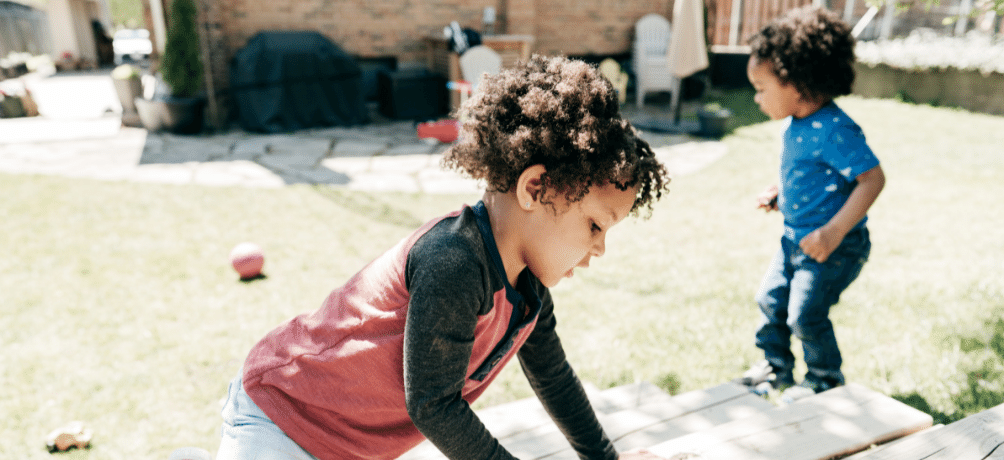Five Tips for Virtual Playdate Success for Kids with ADHD
By Dr. Mary Rooney, Ph.D.
Staying socially connected with friends and classmates when school is not in session is important for the health and well-being of all kids, including those with ADHD. We’ve all learned that virtual playdates can be a good alternative to in-person, but for kids with ADHD who struggle with social skills, there is a good chance that the virtual playdates they’ve participated in over the past year haven’t gone as well as they, or their parents, had hoped. It’s not surprising that many parents of kids with ADHD cringe when they think about planning another virtual playdate for their child.
Fortunately, it is possible for kids with ADHD to have successful virtual playdates. To make this happen, they need support and structure from their parents just as they would if they were going to have successful playdates with their friends in person. In fact, most of the strategies that help things go smoothly during typical playdates also apply to virtual playdates – with a few adjustments, of course!
Five Tips for Virtual Playdate Success:
- Keep it short. Short playdates are often the most successful playdates for kids with ADHD. This is true for in-person playdates and virtual playdates, especially when the friend isn’t someone who they’ve had many virtual playdates with before. So, start small with a 15- or 20-minute playdate and work up to longer playdates over time if things are going well.
- Plan an activity. Kids with ADHD need structured activities to keep them engaged and connected during virtual playdates. Activities that allow for collaboration rather than competition are ideal, like Mad Libs or ice-breaker games like Would you Rather. Competitive games can work well too, as long as they are short and relatively simple. This list of online board games includes some great options for shorter playdates.
- Coach your child how to start and end the virtual playdate. Kids with ADHD often need to be taught specific skills for welcoming their friend to a virtual playdate and for saying goodbye at the end. Role-play the start of the playdate and the end of the playdate with your child. For example, you can say to your child, “When Mira comes on the screen, you can say, ‘Hi, I’m so glad to see you!’ Then after she responds, you can tell her about the three activities we talked about and ask her which one she’d like to do.”
- Hit pause if you need to. One of the best things about virtual playdates is that if things aren’t going well, you can easily turn off the audio and the video for a minute while you help your child reset. For example, if the kids aren’t engaging with each other, let the friend know that your child will be back in just one minute, then pause and give your child some ideas for conversation starters or a new activity. Conversely, if things are getting out of hand, you can take a pause and help your child calm down before restarting the playdate.
- Give positive feedback. Notice the things your child is doing well, and when the playdate is over, praise your child for their success. Ask them what they enjoyed about the playdate and what they’d like to do the same or differently next time. If something didn’t go well, you can make a mental note about this as well and use the information to make some adjustments for the next playdate. But if the playdate went reasonably well, hold off on giving any negative feedback to your child now and let the experience end on a high note!
ABOUT DR. MARY ROONEY
Mary Rooney, Ph.D., is a licensed clinical psychologist in the Department of Psychiatry at the University of California San Francisco. Dr Rooney is a researcher and clinician specializing in the evaluation and treatment of ADHD and co-occurring behavioral, anxiety, and mood disorders. A strong advocate for those with attention and behavior problems, Dr. Rooney is committed to developing and providing comprehensive, cutting edge treatments tailored to meet the unique needs of each child and adolescent. Dr. Rooney's clinical interventions and research avenues emphasize working closely with parents and teachers to create supportive, structured home and school environments that enable children and adolescents to reach their full potential. In addition, Dr. Rooney serves as a consultant and ADHD expert to Huntington Learning Centers.
ABOUT HUNTINGTON
Huntington Learning Center is the tutoring and test prep leader. Its certified tutors provide individualized instruction in reading, phonics, writing, study skills, elementary and middle school math, Algebra through Calculus, Chemistry, and other sciences. It preps for the SAT and ACT, as well as state and standardized exams. Huntington programs develop the skills, confidence, and motivation to help students of all levels succeed and meet the needs of Common Core State Standards. Founded in 1977, Huntington's mission is to give every student the best education possible. Call us today at 1.800.CAN LEARN to discuss how Huntington can help your child. For franchise opportunities please visit www.huntingtonfranchise.com.
This website does not provide medical advice, diagnosis, or treatment. The material on this site is provided for educational purposes only.

